I didn’t want to write this post. And there are a couple of reasons for that.
First of all is the obvious, which is that I’m only writing it because there is a large scale outbreak of a preventable childhood disease that was on the brink of total extinction in this country fifteen years ago. I would prefer that was not the case, and if it was not the case, I wouldn’t feel the need to write this post. Second is more personal, which is that I know some people who do not vaccinate. I know people who are passionate about not vaccinating. I actually know at least one person who believes their child developed autism as a result of vaccinations. I like all of these people. I do not want to offend or upset those people. Some of you who knew me when I was younger and more volatile might not believe this, but I really am a pretty “live and let live” kind of person. My blood pressure benefits from taking a very Wooderson-style approach to life. For the most part, I do not give a shit about the choices people make with regards to their personal lives. You do you, man. Just keep L-I-V-I-N. Alright, alright, alright.

So let’s not look at it that way. I’m not writing this to try and sway anyone who has already made up their minds. That’s probably not going to happen. People who are committed to the idea that vaccination is harmful, is a scam, is a tragedy…those people aren’t going to change their minds. So, fine. Instead, I’m writing this for two other groups of people. I’m writing this for people who haven’t made up their minds. I’m writing this for people who don’t have kids yet, so they haven’t been bombarded from information on both sides. I’m writing this for people who have a natural skepticism towards anything that comes from Big PHRMA (I totally get that!) or who don’t like the idea of the government forcing you to make certain choices about your body (please refer back to my Wendy Davis post for confirmation that I totally get that, too!). I’m writing for people who just aren’t sure, who don’t know what to think.
But I’m mostly writing it for people who, like myself, are passionate about vaccination in this country, for whatever reason. People who want to wade into the muck of the internet to shout loudly at stubborn douchebags, or, hopefully more likely, to calmly rebut information being disseminated by the antivax crowd. Because they have a lot to say, and I would like to give you some things you can say back. You can’t go into a knife fight armed with a spatula, and you can’t argue with antivaxxers without knowing who they are, how they think, and what they’re going to throw at you.
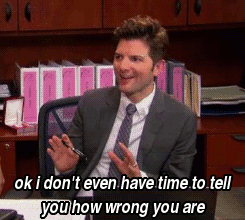
The backlash to inoculation began basically five minutes after someone thought up the idea of inoculation. Jezebel has actually recently published a great post about the older history of the topic, including a lot of stuff I didn’t know. My knowledge of and interest in the subject doesn’t go back quite that far. But I’m pretty well versed in the last thirty years of the anti-vaccine movement. I think the best way to approach this is to write out a Who’s Who, because that’s the fastest way for you to check sources — if you see any of the following names, be skeptical, because these are not people speaking from a position of neutrality. And any Who’s Who of the antivaccine movement has to start with…no, not who you’re all thinking of. Honestly, she’s almost a footnote. No, not him either. We’ll get to them, don’t worry. Instead, we’ll start off delicately, with the grande dame of last 20th century antivax activism. Her name is Barbara Loe Fisher.
•Barbara Loe Fisher: Fisher founded the National Vaccine Information Center (NVIC) after her son had a seizure “within hours of his fourth DPT shot…when he was two and a half years old.” This was the old whole-cell pertussis shot, which legitimately did have a worse record of adverse reactions than the current acellular pertussis (DTaP) shot which children now receive, although those adverse reactions were still rare. Fisher wrote a book in 1985 called DTP: A Shot In The Dark. According to Fisher, she saw linguistic regression in her son immediately following the seizure, as well as “chronic infections, constant diarrhea, new allergies, failure to thrive,” and he ended up with “multiple learning disabilities and attention deficit disorder”. Another website I found claimed he has ADHD, asthma, dyslexia, and diabetes. As far as I can tell, no doctor has ever decisively linked any of those things to the vaccine, and I don’t believe she ever took a case to the Vaccine Court. Her son is now a videographer and competitive power lifter, so apparently he started thriving at some point.
OK, herein lies the inherent problem with criticizing many of the people in the antivaccine movement — I don’t want to talk shit on people’s firsthand experience with their child. What Barbara Loe Fisher went through with her son was certainly extremely difficult and emotionally trying. She believes wholeheartedly that her son’s learning disabilities and autoimmune issues were caused by a vaccine reaction. It is impossible to disprove that, in any single individual case. I’m actually shocked she never took her case to the vaccine court as far as I can tell, because I would guess “convulsion following DTP” would be considered a table injury and pretty quickly compensated just to get it off the docket. (We’ll talk more about “table injuries” in my next post, and just as a heads up, IANAL.) But instead of focusing her attention solely on her son, she became an activist. And that’s where I become critical, because now you’re having an impact on public health. But as a rule, I find it harder to pile on to parents, because I am a parent, and I understand how terrifying it is when your child is sick and how frustrating it can be to not know the cause.
I do not have a similar problem piling on to this next asshole.
•Andrew Wakefield: Hoo boy, THIS GUY. I will try to limit my discussion of Andrew Wakefield to absolutely necessary information and not just shout obscenities. In 1998, Wakefield was the lead author on a paper in The Lancet, generally considered one of the foremost medical journals in the world, that asserted a link between the MMR (measles, mumps, and rubella) vaccine and what he later dubbed “autistic enterocolitis”.
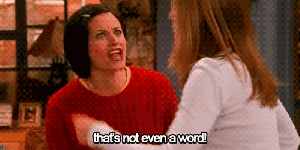
Basically, to boil it down, he suggested to the world that autism was likely caused by the MMR vaccine and was really developmental regression caused by inflammatory bowel disease.
People went batshit. Vaccination rates in England, where Wakefield is from and The Lancet is published, dropped precipitously! Congressional hearings were held! (We’ll also get to those in a later post.) Suddenly, even though we were talking about a totally different vaccine, Barbara Loe Fisher’s crusade was vindicated!
And then, a guy named Brian Deer looked a little closer at this study. It was problematic. I use that word because it is a hilarious understatement.

To begin with, the article was a case study that used only 12 children, all self-selected, hardly a large scale study with a random sampling of autistic kids. So the scientific impact of the paper, based on the evidence presented by the paper itself, by all rights should have been very limited. But wait, it gets more interesting.

Two years before the paper was published, Wakefield was hired by a lawyer named Richard Barr who wanted to start a class action lawsuit against the pharmaceutical companies that manufactured the MMR vaccine. Not only that, but Barr paid Wakefield out of the UK LEGAL AID FUND, and Wakefield made around $750K, not including expenses, which was laundered through his wife’s personal company! Oh! Oh! AAAAAND! A year before the paper was published, Wakefield secretly filed for a patent for a single measles vaccine! So, here we go, on top of the grant he personally received from the Legal Aid Board to do the research, he also made $750K (also public money, meant to help the poor and disabled) from a lawyer who wanted to sue the pharmaceutical companies, AND he stood to financially profit from his own proposed vaccine if he could cast doubt on the safety of the triple shot. You got that? That’s Wakefield’s financial shadiness.
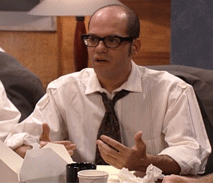
BUT THE STUDY ITSELF WAS EVEN BULLSHIT. Most of the children were referred by the lawyer who wanted to sue Merck, their medical histories were repeatedly changed and falsified, Wakefield gave the kids spinal taps and colonoscopies without getting approval from the Royal Free Hospital’s ethics board, and later tests showed that the intestinal biopsy results stated in the study were incorrect.

Oh, and also he got his study controls by paying the parents of kids at his son’s birthday party five quid each for their blood. Jesus christ, THIS ASSHOLE.

So, you know, he’s been stripped of his medical license. The paper’s been retracted. The dude is dodgy in every single way shape and form and anyone with an ounce of sense knows that. But he is still actively celebrated by the antivaccine community. He is their martyr. He founded an organization in Texas called Happiness House where desperate parents could take their kids to be tested and treated for so-called autistic enterocolitis, and more shady research could be done. After he lost his license, Happiness House changed its name and Wakefield and his cohort disappeared from their research masthead. Wakefield now mostly hangs around conferences lapping up speaking fees and doing propaganda videos for various antivax media outlets.
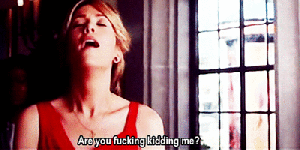
It’s worth also mentioning his buddy Arthur Krigsman, who basically has built an entire career around diagnosing autistic enterocolitis. Storytime: About a year and a half ago, a woman named Dorothy Spourdalakis killed her son, Alex, who had been hospitalized for apparent gastrointestinal illness and who was non-verbal and autistic. Wakefield showed up at his bedside in the hospital to make a short movie (with the help of Polly Tommey from the Autism Media Network, and disseminated with the help of then-CBS reporter Sheryl Attkisson, who can reliably be counted on to take the conspiracy theory stance on basically everything and who also believes that Obama bugged her laptop because Benghazi)

…about how the hospital was treating this boy horribly and refusing to entertain the notion of using any alternative protocols. Wakefield and Tommey’s video, which I am not going to link to because it is too upsetting, revealed that an independently obtained gastroenterologist had been flown into Chicago and discovered that Alex was almost certainly suffering from measles enterocolitis. Guess who that gastroenterologist was? Hi, Arthur Krigsman! Wakefield has recently put out a documentary called “Who Killed Alex Spourdalakis?” The answer is apparently NOT “his mother and godmother who tried to overdose him and then stabbed him to death when the overdose failed.” No, according to Andrew Wakefield, Alex Spourdalakis was killed by mainstream medicine, Big PHRMA, and everyone who had refused to listen to him, Saint Andrew Wakefield, who has only ever had the needs of the children at heart.

I hate Andrew Wakefield, and you should too.
•Jenny McCarthy: Jenny falls into the same category as Barbara Loe Fisher for me, to a certain extent, in that I don’t doubt her sincere belief that her child’s medical challenges were due to vaccines. But man alive, did throwing her hat into the antivax ring during that Oprah special ever revitalize her career in a creepy way.

Jenny has written three books about autism and vaccines since her son Evan was diagnosed with autism. Her first book deals specifically with Evan’s story. According to Jenny, after Evan’s MMR he started showing behavioral and language regression, bloating, eczema, and then eventually seizures. She tried every biomedical treatment under the sun and now, as a preteen, Evan barely shows any signs of autism and doesn’t qualify for special ed services through the school district. Evan also recently called the cops on Jenny for texting while driving. I like Evan. He sounds like my kind of kid.
Jenny’s second book is basically a compilation of stories by other “autism moms” who subscribe to a biomedical approach to treating autism. (One of the moms in the book is Katie Wright, who believes her son Christian developed autism after his MMR shot. Katie Wright’s parents subsequently founded Autism Speaks, which I don’t even have the time to get into here other than to say that Autism Speaks does a lot of great stuff and a lot of messed up stuff and her dad Bob Wright seems to have his head generally in the right place and her mom Suzanne Wright seems to be a horrible narcissist and neither of them believe Katie’s “mommy instinct” about vaccinations is correct and it has been incredibly damaging to their family and I am sorry for Christian and I hope he’s doing OK. Would you like to add one dollar to your Toys R Us purchase today to Light It Up Blue with Autism Speaks?) They tell their stories and then Jenny butts in with parenthetical or italicized asides, because she’s your cool funny friend with big boobs who likes to fart and also talk to you about chelation. This book is not very good.

Jenny’s third book is nearly unreadable. I’ve tried a few times but I have to jump around because I just keep going “urrrrrrrgh” or “bleeeeeggghhh” or “you have to be kiiiiidding me” and rolling my eyes and banging my head on the back of the chair in the library and generally libraries frown on that sort of behavior. She co-wrote it with a guy named Jerry Kartzinel, who is a DAN! doctor. DAN! stands for Defeat Autism Now! and was a list of doctors endorsed by the Autism Research Institute (which I think would have really befitted from an exclamation point of its own: the Autism Research Institute!) who would treat autistic kids with a variety of biomedical approaches, all of which Jenny and Jerry discuss AT LENGTH in this book. Ranging from relatively uncontroversial and harmless (gluten free/casein free diets, probiotics and vitamin supplements) to nutty and dangerous (chelation, hyperbaric oxygen chambers, chemical castration), DAN! doctors like Jerry Kartzinel made their living by telling desperate parents that their children could be cured if only they tried these very expensive and totally overwhelming treatments to undo the heavy metal poisoning they had been exposed to through vaccination, heavy metal poisoning which of course can only be confirmed by these specific blood tests that they run at this one lab in Kansas, because that’s not suspicious at all and is totally how blood tests work.

The book is literally just these two people talking about all the interesting things that come out in kids’ poop once they start flushing out toxins. It’s EXHAUSTING, and one of only two books I have ever been tempted to buy simply so I could scribble fact-checky tirades in the margins. (The other book was Liberal Fascism by Jonah Goldberg. Both times I managed to keep my wallet in my pocket, my pen in my purse, and my brain from actually melting out of my ears…but only just barely.)
The Autism Research Institute is now defunct, the official DAN! doctor list has disappeared, Jerry Kartzinel has a Wellness Center where you can buy his own line of supplements and enzymes for only $150 a month, and Jenny McCarthy isn’t showing up much at Generation Rescue or SafeMinds rallies now that she has a place at the table on The View where she wears smart lady glasses and talks about how much she likes to make out with the New Kid she married. (What’s truly horrifying most days on The View is that Jenny McCarthy is almost always the voice of reason. Don’t watch The View, people.) Jenny has walked back pretty much every previous statement she has ever made about vaccines, claiming she’s not ANTI VACCINE per se, she is simply pro SAFE vaccines and pro PARENTS MAKING THEIR OWN CHOICES AND DOING THEIR OWN RESEARCH about vaccines. I think that Jenny McCarthy death calculator website took the wind out of her sails a little bit. But let’s talk a little about parents doing their own research about vaccines. Because that brings us to a guy that I used to give the benefit of the doubt, but who recently has me seeing red.
•Bob Sears: Most expectant parents of the last decade, when they first found out they were pregnant and went to the bookstore to flip through books that would either give them heart attacks about everything they were doing wrong (NO CHEESE OR MEAT OR WINE! COFFEE? ARE YOU EVEN SERIOUSLY ASKING ME THIS? NO YOU CAN’T HAVE COFFEE DON’T YOU LOVE YOUR BABY?) or teach them that everything would go perfectly because Mother Earth Gaia Perineal Massage Evening Primrose Oil, ran across the books in the Sears Library. The Baby Book, The Pregnancy Book, The Birth Book, etc etc etc. Those books were written by Dr. William Sears and his wife Martha, who is a nurse. Bill Sears is known as the primary proponent of “Attachment Parenting” which advocates natural vaginal childbirth and extended breastfeeding if you can swing it, baby wearing, co-sleeping, and basically trying to be as in tune and responsive to your baby’s needs as possible. I read all these books and did a lot of attachment parent-y stuff, and it’s great but it is also EXHAUSTING, as you can pick up from the paragraphs Martha contributes here and there throughout the books that try to sound perky but have a definite undertone of “I have been a stay at home breastfeeding baby wearing cosleeping mom to eight children I am so tired haaaaaalp.”
Appearances to the contrary, Bob Sears is not Bill Sears. Bob Sears is in fact the second oldest child in the Sears brood. He has contributed a few books to the Sears Library, and the one he is best known for is The Vaccine Book. Yes, Bob Sears is a) not his father as much as his books make it kinda look seem like he is, and b) the guy who came up with the much vaunted Alternative Schedule. All hail Dr Bob and his sensible alternative schedule.
I have read The Vaccine Book. I think he does a good job at explaining the different shots, mostly, and having an alternative schedule to suggest to wary parents is certainly better than ending up with parents who don’t vaccinate at all. I would like to take Dr Bob at his word that he believes in the importance of vaccination and isn’t an “antivaxxer” per se and is really just trying to find a middle path through all the sturm und drang on either side. Unfortunately, I have also read another one of his books. It’s called The Autism Book: What Every Parent Needs To Know About Early Detection, Treatment, Recovery, and Prevention.

I’m going to give you a hint, as a parent who has tried to read basically everything about autism I can get my hands on. If you see the word “recovery” anywhere in the title, you’re dealing with an antivaxxer, or at the very least someone who is deeply entrenched in a biomedical treatment model of autism. Dr. Bob brings up the Wakefieldian measles enterocolitis theory as a possible cause of autism. This book was published in 2010, the same year that The Lancet completely retracted Wakefield’s study. I talked a little bit earlier when DAN! came up about what biomedical treatments consist of. Dr Bob talks about all of them in The Autism Book. Megadose vitamins, chelation, hyperbaric oxygen chambers, enzymes and yeast treatments and GFCF and on and on and on. I don’t remember if secretin (i.e. chemical castration) was discussed, to be fair, but if MMS treatment was around in 2010 when the book came out, I bet he would have made room for that in his book, too. (For those reading this who don’t know, MMS stands for Miracle Mineral Solution, which is basically giving your child ever-increasing doses of bleach both orally and rectally to clear them of all their toxins. Wheeeee!)
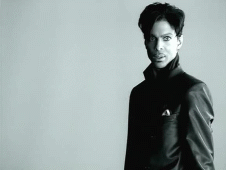 Dr. Bob likes to claim he’s not antivaccine. But anyone who has read The Autism Book knows that Dr. Bob is on Team Biomed, all the way. He’s made that increasingly clear over the last couple years as more and more clusters of vaccine-preventable illness have popped up. Pouting over whooping cough. Tut-tutting about rotavirus. But man, this Disneyland measles thing has just blown his cover wide open. His initial reaction to the outbreak was telling people that they’re overreacting and measles is nothing to fear, and then when people called him out about it he posted a petulant reply on Facebook saying that OF COURSE people should get their measles vaccines but meanwhile, “just to be complete, since I mentioned the ‘S’ disease as well, let me remind you that there is a vaccine to prevent stupid. If you haven’t gotten it already, you should.”
Dr. Bob likes to claim he’s not antivaccine. But anyone who has read The Autism Book knows that Dr. Bob is on Team Biomed, all the way. He’s made that increasingly clear over the last couple years as more and more clusters of vaccine-preventable illness have popped up. Pouting over whooping cough. Tut-tutting about rotavirus. But man, this Disneyland measles thing has just blown his cover wide open. His initial reaction to the outbreak was telling people that they’re overreacting and measles is nothing to fear, and then when people called him out about it he posted a petulant reply on Facebook saying that OF COURSE people should get their measles vaccines but meanwhile, “just to be complete, since I mentioned the ‘S’ disease as well, let me remind you that there is a vaccine to prevent stupid. If you haven’t gotten it already, you should.”
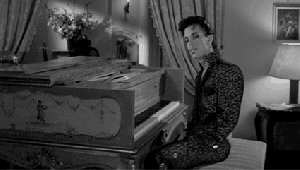
I’m pretty sure the vaccine against stupid is reading Bob Sears’ Facebook page on the regular. That way you will be exposed to his idiocy in small doses so when he totally loses it, like he did the other day with his satirical piece about how Disneyland should require all parents of kids with ADHD to medicate their children, you will have built up an immunity to that astonishing level of asshattery. Also good to know that Dr Bob not only thinks my kids are vaccine-injured, but that one of them has another disorder that’s super funny and shouldn’t be medicated without ridicule. Isn’t watching kids suffer from ADHD hilarious? Almost as hilarious as kids going blind from measles! Dr. Bob’s Orange Country pediatric practice is most assuredly a non-stop laugh riot, and also a geographically super convenient petri dish for communicable childhood disease. It’s a small world, after all.

I’m going to stop there for now, because this got way way way longer than I intended it to — and we haven’t even gotten to Age of Autism! Or the Congressional Hearings! Or the Vaccine Court! Or Deuce Bigalow Male Gigolo! Give me some time to regroup and I’ll come back with more. In the meantime, remember to spay or neuter your pets! Wait, that’s not it…





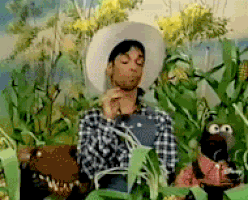




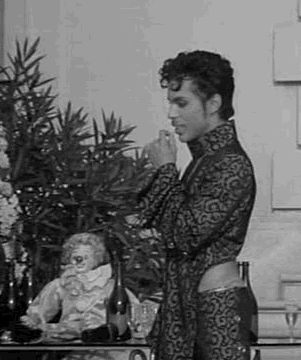



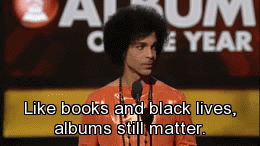








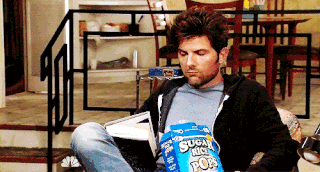

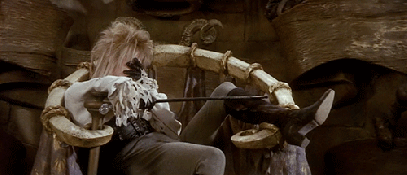
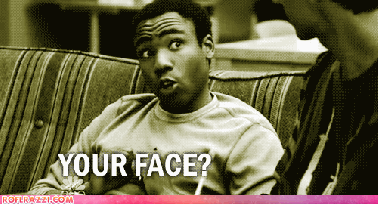

























 Dr. Bob likes to claim he’s not antivaccine. But anyone who has read The Autism Book knows that Dr. Bob is on Team Biomed, all the way. He’s made that increasingly clear over the last couple years as more and more clusters of vaccine-preventable illness have popped up. Pouting over whooping cough. Tut-tutting about rotavirus. But man, this Disneyland measles thing has just blown his cover wide open. His initial reaction to the outbreak was telling people that they’re overreacting and measles is nothing to fear, and then when people called him out about it he posted a petulant reply on Facebook saying that OF COURSE people should get their measles vaccines but meanwhile, “just to be complete, since I mentioned the ‘S’ disease as well, let me remind you that there is a vaccine to prevent stupid. If you haven’t gotten it already, you should.”
Dr. Bob likes to claim he’s not antivaccine. But anyone who has read The Autism Book knows that Dr. Bob is on Team Biomed, all the way. He’s made that increasingly clear over the last couple years as more and more clusters of vaccine-preventable illness have popped up. Pouting over whooping cough. Tut-tutting about rotavirus. But man, this Disneyland measles thing has just blown his cover wide open. His initial reaction to the outbreak was telling people that they’re overreacting and measles is nothing to fear, and then when people called him out about it he posted a petulant reply on Facebook saying that OF COURSE people should get their measles vaccines but meanwhile, “just to be complete, since I mentioned the ‘S’ disease as well, let me remind you that there is a vaccine to prevent stupid. If you haven’t gotten it already, you should.”









